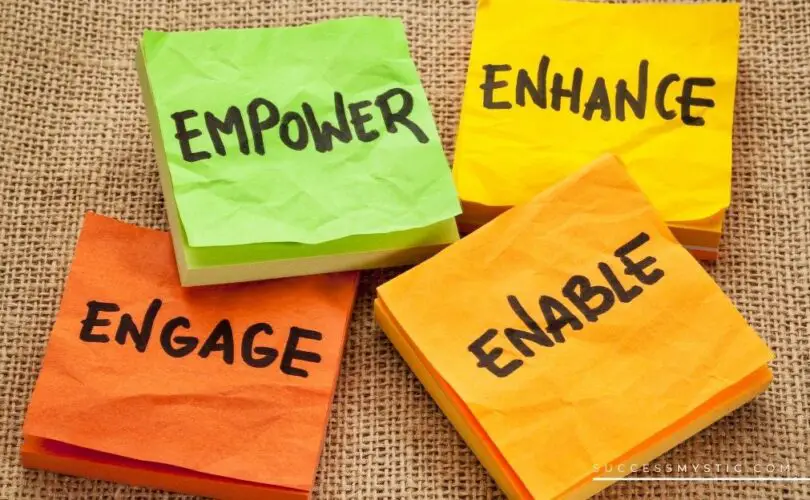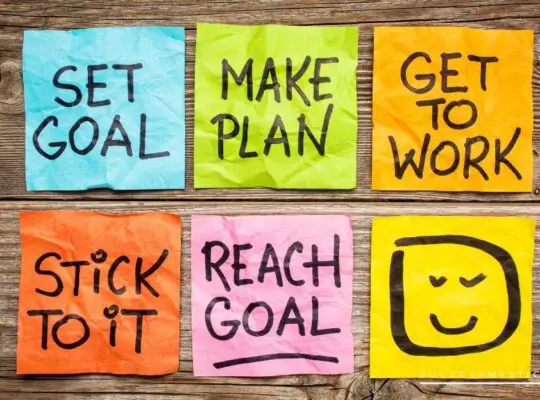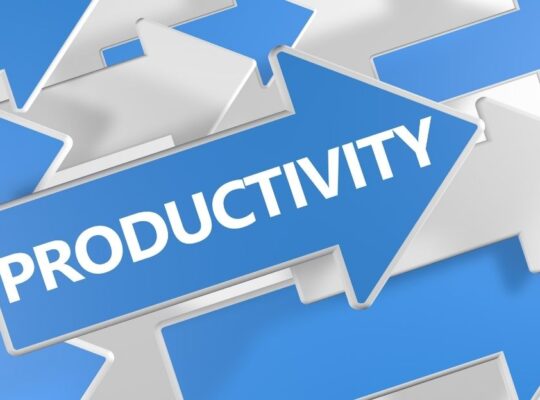In this article: Empower yourself by embracing all that you have to offer.
I want you to cast your mind back to a moment in time where you were up for review. Whether it was as a child coming home to your parents with your latest report card, your annual review at work, or even just a conversation with yourself, or a loved one, about an event that occurred recently.
Overall, you performed incredibly well, but there were a couple of marks against you. They weren’t the end of the world, but still, there they were on your “permanent record.” Did the other person praise you for the good that you did, highlighting your strengths?
Did they comment briefly on the positives and then dip into highlighting how you can improve on those bad marks? Or, did they dip right into the negatives because you shouldn’t make any mistakes at all?
The majority of people would say, from childhood through adulthood, that the second one was their experience. Hey, you did really well, but you missed a trick here. The focus on total perfection can be utterly destructive to your self-esteem and confidence, which potentially could eat away at your strengths! There’s even a good chance that your mind takes you back to the situation you went through and in your dreams, you try to rectify your errors to right them.
Despite your overall success, your focus is on the negatives, blurring the positives. It is far more important for your success, whether in your career or your personal life, that you discover your strengths, nurture them, and shift the focus away from those weaknesses.
Your brain has been developing since your early childhood, thus your set of talents and skills is unique to you, as they are to everyone. Your unique talents correspond to the pathways in your brain and they are stable throughout your life.
If you nurture skills and knowledge in those natural talents then you will develop a strength.
What Is A Strength?
Generally, it is an activity that you aren’t just good at, but that you enjoy. Of course, anyone can train himself or herself to attain knowledge in a certain area to grow a strength, but it isn’t the same as when it’s a natural talent. Therefore, it’s helpful for you to understand your natural talents.
The people who are the most fulfilled and the most successful know what their talents are and have been able to cultivate them into strengths. You will have met countless people just like this, they do their jobs well, and those jobs tend to revolve around their core strengths. How do they handle their weaknesses? They work around them because they understand that they don’t need to be good at everything.
For instance, if you are a bit of an introvert you may never get to a point where you feel comfortable handling direct sales, you may know everything there is to know about a product or service, but you won’t excel as a salesperson. That’s okay, you don’t need to chase that life, you can build success around your strengths and cast your weaknesses aside.
We have long been conditioned to believe that our biggest growth areas are in our weaknesses.
Companies will spend their training budget on plugging the gaps in competencies and skills in their employees. The truth is that excellent performers aren’t well rounded and good at everything and that belief just makes employers take strengths for granted.
Doesn’t that sound like a waste of resources when the budget could be used to further strengthen an employee’s core talents?
The true way to succeed in business and in life isn’t by managing your weaknesses; rather it lies in maximizing your strengths. Discover them, nurture them, and wave your weaknesses goodbye.
Embrace Your Weaknesses
Your mind is constantly producing thoughts, so take a time out to consider how many of your thoughts are negative or critical of yourself. Before now, you probably weren’t conscious of just how often these negative thoughts were popping into your head. However, now that we’re on the subject and you are conscious of these thoughts you can understand how negatively they can impact your self-esteem.
The same can be said for unpleasant feelings that you experience. These wash over you and leave you feeling less than before you have time to process a negative thought. You meet an old friend and when you hear about how successful they are, you put yourself down. You run into your friend and their new partner and their attractiveness leaves you feeling inadequate and self-conscious. You get talking to someone at a gathering and his or her intelligence makes you feel awkward.
All of these feelings and thoughts are sitting within you brewing, they simmer away slowly evaporating your self-esteem. The longer you allow this bitter brew to simmer the stronger it becomes. You reach a point where your self-confidence is low because you have totally focused on your failures and flaws. Your perception of you is rooted in your supposed weaknesses.
How do you expect to succeed and perform if you constantly feel bad about being you? It isn’t going to motivate you, nor will it help you achieve your goals, in fact, you’re limiting yourself.
When you allow a bitter brew to steep for too long, you start to exaggerate weaknesses, failures, and flaws and start to believe things about yourself that aren’t really true. You tell yourself stories that aren’t rooted in reality, but if you take the time to investigate why you think these thoughts, you will realize how far you have gone astray.
Now, that isn’t to say that weaknesses aren’t real, we all have failures.
You may be slightly overweight, you might be lazy sometimes, you may be quick to anger, you made the wrong choice, you could be kinder, you don’t earn enough, you got dumped or fired, you’re too outgoing, you’re not outgoing enough, you aren’t as attractive as your friend.
There’s probably something listed above that you have thought or experienced and it has been upsetting. Any of these situations could be the source of upset, and they often cause regret, shame, and grief. Flaws are part and parcel of the human condition, and even the person that you believe to have it all doesn’t really. We all have our own hang-ups and our own situations to deal with.
Every one of us has made a mistake and is aware of those failures. Every one of us has experienced an emotional, mental, or physical imperfection.
The key is in your willingness to embrace your weaknesses and accept them.
If your self-esteem problem is rooted in a genuine flaw then consider what you can do to improve your situation or minimize the pain that it is causing you. These types of actions, no matter how small, can boost your self-esteem and make you feel that you are taking control back of your life. However, certain things just cannot be changed and those are the “weaknesses” that you should embrace.
Is there a mistake that just can’t be fixed because it’s too far in the past? Is the bane of your existence a physical feature? Stop fighting it and just love them. Gather your flaws into a bundle and just embrace them as a part of who you are.
It’s okay, you’ve failed, he’s failed, she’s failed, they’ve failed, we’ve all failed. It isn’t in the failure; it’s in the bouncing back. You cannot reject the things that are essential to your experience as a human being. Nor should you beat yourself up about them.
What does it really mean to embrace these weaknesses? Just that you accept that and that you don’t need to struggle against them anymore. Once you accept them, you can improve your emotional standing and strengthen your overall character and confidence. With acceptance comes peace of a mind and an ability to focus on your strengths.
Think about it, on how many occasions have you spent time with someone who is totally comfortable with themselves? They know what their weaknesses are and they have embraced them, they don’t allow them to control their lives. While it’s comforting to know we have all experienced failures and that we are all flawed, it’s empowering to know that managing them brings success.
You can choose low self-esteem and negativity, or you can accept weakness and play to your strengths.
Play To Your Strengths
After a lifetime of being told to focus on your weaknesses, you’re probably fed up and frustrated. Right? When your focus your attention on improving your weaknesses, there are two likely outcomes.
The first, of course, is that you will improve marginally.
The second is that nothing will change. Either way, the outcome is going to be that you are grumpy at the fact that you have put all of this effort in to improve certain areas and it hasn’t gotten you anywhere.
When you spend all of your time, every day, focusing on things you are bad at you’re likely to drag yourself down and feel depressed. Instead, you should focus on what it is that you do really well. Why wouldn’t you play to your strengths?!
If you focus on your weaknesses all the time you’re likely to slip into mediocrity, yet when you concentrate on what you’re good at and maximize and nurture those strengths you win.
Anyone who has been around the block a time or two knows the struggles of trying to improve areas of weakness. You will absolutely make a small difference by doing this, but it will be slow and the results will never match your expectations.
You won’t be good at that thing, you just won’t be as bad at it as you were before. It will consume your time, your attention, and your energy, when you could be using those valuable resources elsewhere to the betterment of your career and/or yourself as a person.
The saying jack of all trades, master of none is important because it is what so many of us are expected to do in our jobs and in our lives. You must wear every hat and perform every task as adequately at the last. You’re just holding yourself back with this attitude, though, because you should be allowed to excel where you can.
We have long been too focused on the negative, but can you imagine how different life could be if we put all our focus into our strengths? In business, it will boost the bottom line. In life? Your happiness.
Consider how a small business owner manages a business. The ones who succeed are those who know their skills can’t and won’t stretch across everything that needs to be done, so they enlist the help of other people to handle certain aspects of the business while they focus on what they do well. This same ethos can be applied at every level of employment, as well as throughout your personal life, too. Why waste your time and energy doing everything, when you can focus on what you’re great at and allow others to focus on their strengths, too.
Maximizing Your Strengths
This is often something that we view in black and white terms. Something is either a weakness or it’s a strength, however, it’s more complicated than that. Quite simply, we have to different types of strengths: the natural, realized, or known strengths and the hidden, unrealized, unknown strengths.
Now, both types of strengths are the same in that they bring you joy and energy and they are things that you excel at.
There are also two different types of weaknesses: those things that you are bad at and drain your energy, and the learned behaviors, which continue to drain your energy despite the fact that you’re good at them.
The latter are tricky because these are often things that you have learned and have been praised for, perhaps encouraged to continue to hone them, and then rewarded for it. Anyone can learn a certain skill or obtain specific knowledge, however, if it is draining your energy, it’s a weakness and is in the way.
If you’ve been around the business world then you have probably heard weaknesses being framed as opportunities. They are areas where you have a chance to improve to boost your overall performance. However, the true opportunities are found in your strengths. These are the areas that you should develop.
How To Identify Hidden Strengths
To identify hidden strengths, consider the following:
- Energy. If you have bundles of energy for something and you can’t wait to spend time doing it, then it’s a strength.
- Success. If something is making you successful and fulfilled then it’s a strength.
- Need. If it’s filling an innate need, then it’s a strength.
- Growth. If something is helping you become a better you and you’re growing: it’s a strength.
- Instinct. It comes naturally to you, you’re drawn to it instinctively: strength.
Of course, one of the most effective ways to nurture your strengths is by exercising them. If you don’t use them they will waste away (just as muscles do) and if you overwork them you’ll end up fatigued.
How To Nurture Your Strengths
Here are a few ways you can nurture your strengths.
- Identify your strengths and when and where they should be used.
- Ask how you can apply your strengths more often or more efficiently.
- Find ways to nurture your strengths more often.
- Organize your day around those strengths.
- Exercise your strengths daily.
As you work to nurture your strengths, manage the learned behaviors. You won’t find success in fixing weaknesses, but you still need to be aware of them to play to your strengths.
Managing Weaknesses
- Use your strengths to determine how they can support your weakness.
- Work with people who compliment you, their strength can be your weakness and vice versa.
- Know what learned behaviors you have picked up and adjust your life accordingly.
- Increase your strengths.
When you come to the end of your day, take time out for a spot of daily reflection. At this point, you can highlight how your strengths served you throughout your day.
You can use a journal for this exercise, or just think about it, either way, ask yourself the following questions:
- How did you apply your strengths today?
- How did it feel when you relied on your strengths?
- Did you get caught up by a learned behavior?
- What can you do more of?
Don’t fall into the trap of overusing your strengths, look at for the following signs that indicate you are overdoing it:
- If you feel frustrated, annoyed, or nervous then know you are stressed out.
- If you are experiencing intense emotions, you may want to consider that you’re overusing your strengths.
An effective way to keep your mind balanced is by using mindful meditation. You can do it during your stressful situation, or start/finish your day with a session. The great thing about it is you can do it anywhere and it doesn’t take long to refocus your mind.
Do you know what your strengths are?
There is no point is knowing how to take advantage of them if you aren’t quite sure of what they are. Don’t worry, though, there is help at hand. Kent University provides a 52-question test (ref.) that will help you determine where your strengths lie.
Final Thoughts
There is no need to compensate for weakness because it is far easier to play up your strengths. The truth is, you have probably been paying an unnecessary amount of attention to negative data. Millions upon millions of people across the world feel sick and worried because their entire focus is on how they can rid themselves of this scourge we refer to as weakness.
If we are being honest with ourselves then we can admit that no matter how hard you work at it, there is a good chance you will never overcome that weakness. However, if you nurture your strengths you can make significant changes to your working and personal lives.
The key lies in becoming more you, instead of trying to change who it is you are. Know those weaknesses and accept them. Don’t be afraid to embrace flaws and uncertainty.
According to a Harvard Business Review study (On How To Play To Your Strengths, Roberts) while you may recall criticism, being aware of your faults doesn’t mean your performance will improve.
Additionally, an understanding of your strengths is more likely to provide you with the tools to overcome weakness. It provides you with the confidence to say you know might, I might be lousy at this, but I am fantastic here, so I can put my focus on this task. You won’t be caught up worrying about getting better at what you’re bad at it; you can instead focus on your strengths.
You might be able to be good at everything, but wouldn’t you rather be great at what you do well?
Everyone is different and there’s nothing wrong with not fitting in, so have the courage to embrace your best self. Don’t worry about the perception of others, you can stop trying to fit in and instead, force the world to fall in line with you.
You don’t have to allow the opinion of others to weigh on you, you can stand up and stand out in a crowded room littered with ideas and competition. You aren’t following the same pattern that others might be, that isn’t just okay; it’s great because it will show in everything that you do. Often, the biggest mistakes that we make in life are when we allow our individuality to slip away as we chase what everyone else is chasing.
You don’t need the approval of others, nor do you need to seek permission. If you are being held back from chasing something the only person holding you back is you.
Stop talking about doing great things, just go out and do them!







